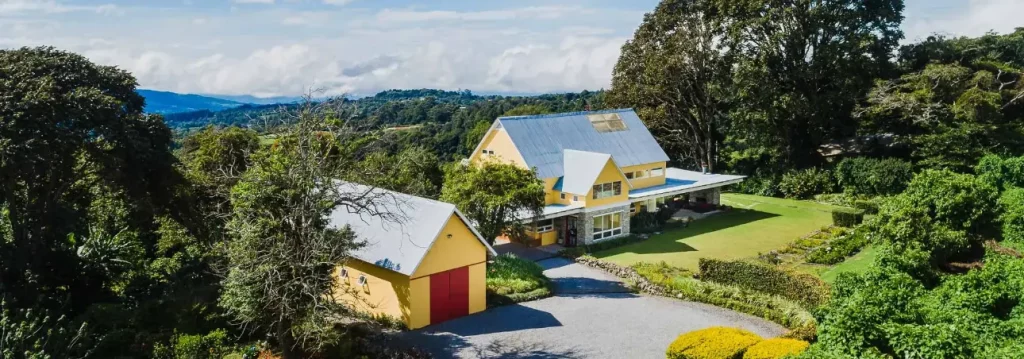
Boquete and Volcan are coffee country. These areas in Chiriqui produce most of the coffee grown in Panama. When driving through the hills and hiking the trails of Boquete you see lots of the rich green leaves and, in the right time of year, the bursting red berries or flowering coffee bushes. The coffee farms are beautiful places. For the partial shade preferred for coffee growing, the fincas often have many thriving trees interspersed among the coffee plants. Indigenous tribes, the Ngöbe-Buglé, with the women in their colorful dresses are often seen in the hills picking coffee. Some of the farms provide excellent tours of the cultivation and processing. It is an important part of the culture in the region.
And, an important business. When coffee prices rise, so do the fortunes of local farmers.
In addition to the mass market beans grown in Chiriqui, the area is well-known world-wide as producers of the most valuable coffee on the planet. A few Chiriqui farms consistently win in international coffee cupping contests and also compete regularly for distinction of highest price paid per pound for specialty coffee.
While other excellent producers are providing fine competition, of note has been the excellence of Hacienda La Esmeralda of the Peterson family in Boquete. Their specialty coffee has sold as high as $350 per pound in world auctions and is considered by many connoisseurs as the best coffee in the world.
Projections for continued drought in Brazil mean they’ll likely rise again, Time Magazine, Elizabeth Barber, 10/7/14
Arabica-coffee prices reached their highest level in 2½ years on Monday, after projections for more dry weather in Brazil sowed worries about lackluster future harvests, the Wall Street Journal reports.
Arabica coffee ordered for delivery in December ended on Monday at $2.2080 a pound on the ICE Futures U.S. exchange — the highest price since February 2012, WSJ says. A commodities strategist betting on the futures market also told WSJ he expects coffee-trading prices to rise from here, to $2 to $3 a pound next year.
For cup-of-joe consumers, though, the effects will not be immediate. WSJ reports that Starbucks has already fixed prices with suppliers to meet its needs in 2015, though prices for 2016 are still in the works.
The recent coffee harvest in Brazil was the smallest in three years and follows Brazil’s worst drought in decades. Brazil is the world’s biggest exporter of coffee beans, though the largest importer to the U.S. market — where Americans spend about $40 billion a year on coffee — is Mexico, the U.S. National Coffee Association says.
Photo by Casa Solution staff



